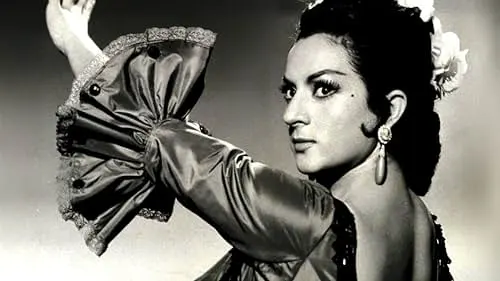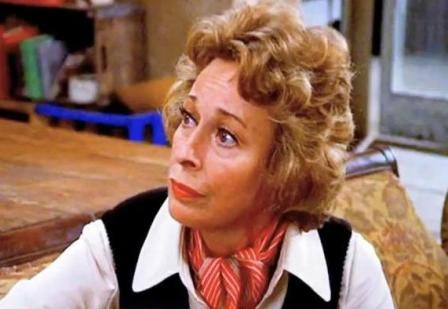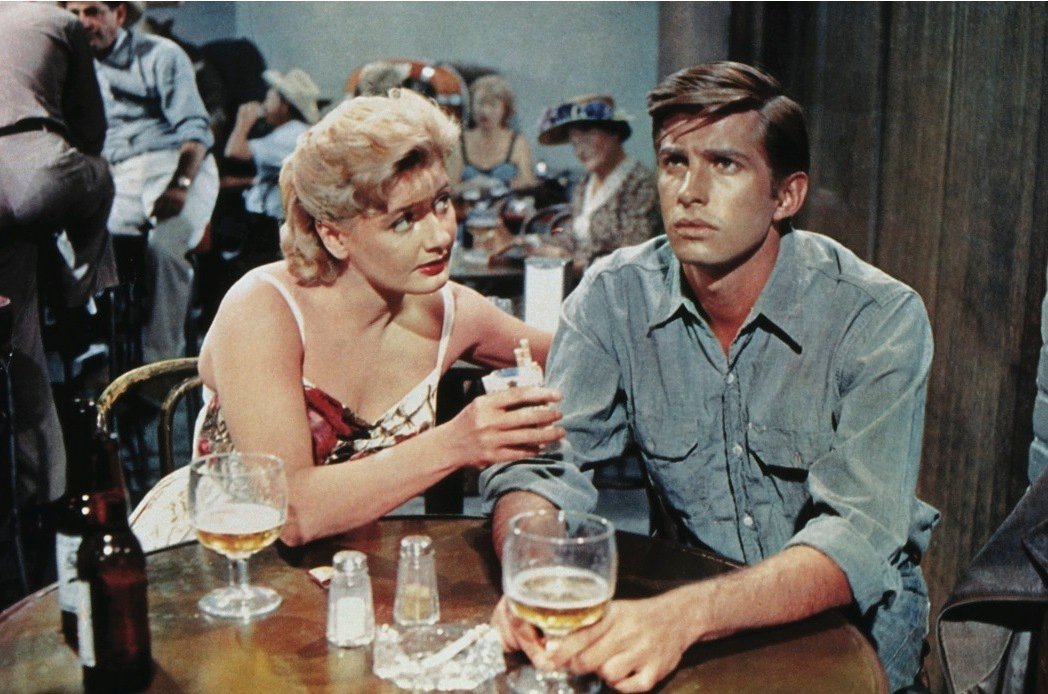Acctress
Lola Flores: A Life of Passion, Music and Film
Lola Flores was an iconic Spanish actress, dancer and singer renowned for her flamenco music and copla contributions in Andalusian folklore and her groundbreaking flamenco dancing performances. In addition to these accomplishments, Lola became known for her strong personality, controversial personal life decisions and role as matriarch to an impressive Spanish musical family tree that she established herself. We will discuss her life from humble beginnings in Jerez de la Frontera to international recognition and legacy here.
Early life and career beginnings

Lola Flores
Lola Flores was born Maria Dolores Flores Ruiz on January 21st in Jerez de la Frontera in Andalusia on January 21, 1923 to Pedro Flores Pinto and Rosaario Ruiz Rodriguez (both waiters). Although not a Gypsy herself, Lola grew up influenced by their culture and music during her formative years in Jerez de la Frontera.
Young Adele became interested in performing arts from an early age, singing and dancing at local festivals and taverns before learning guitar and castanets. By 16, she had made her stage debut as part of Luces de Espana in her hometown production; soon thereafter film director Fernando Mignoni recognized her talent and offered her a role in his film Martingala (1940).
Lola Flores settled in Madrid to pursue a professional music and film career and soon gained prominence through charismatic and emotive performances that blended flamenco, copla, rumba and ranchera music styles. Additionally, she collaborated with some of the greatest composers and lyricists such as Rafael de Leon, Manuel Lopez-Quiroga Miquel and Antonio Quintero at that time.
Career breakthrough and marriage
Lola Flores made her breakthrough role in Zambra as part of an unforgettable musical stage production starring Manolo Caracol, an acclaimed flamenco singer who later became her romantic partner for eight years. The show became an immense hit across Spain and Latin America and featured some of Lola Flores’ iconic songs including La Zarzamora and La Nina de Fuego – including her signature performances!
Embrujo (1947), La Lola se va a los puertos (1947) and La nina de la venta (1951) showcased her versatility as both actress and singer, while in 1951, she signed a five-film contract with Suevia Films worth 6 million pesetas – then the largest contract ever given to any performing artist in Spanish history – under which she starred in major productions such as!Ay, Penita Pena! (1953), La Danza de los Desireeos (1954) and El Balco De La Luna (1962; both produced signature songs A Tu Vera and!Ay, Penita Pena! coining her the nickname La Faraona (The Pharaoh).
Lola Flores married Antonio Gonzalez, commonly known as El Pescailla. They had three children together: Lolita, Antonio and Rosario who all became famous singers and actors themselves. Lola Flores and El Pescailla formed a musical duo and recorded several albums together such as Lola y el Pescailla (1960), La faraona y el Pescailla (1962) and Lola Flores y el Pescailla (1967).
Decline of copla and legal problems
Lola Flores experienced a decline in both her popularity and career during the 1960s as copla lost its appeal among younger audiences, the Spanish cinema industry became troubled, legal issues such as tax evasion were encountered (which resulted in fine of 20 million pesetas and brief imprisonment), along with scandal in 1968 when she was accused of smuggling jewels from Morocco were present as well.
Lola Flores never gave up and reinvented herself into a television star and showgirl. She hosted several programs such as Esta noche con Lola Flores (1967), Lola de noche (1978) and Sabor a Lolas (1984) where she interviewed celebrities, performed songs and sketches while showing off her humor and spontaneity. Additionally she made guest appearances in TV series like Juncal (1989) and El coraje de vivir (1990).
Lola Flores continued performing live and recording albums such as Lola Flores in New York (1965), Lola Flores y sus Hijos (1976), Lola, Lolita, Lola (1983) and De la Mano (1990). She collaborated with other artists such as Julio Iglesias, Rocio Jurado, Celia Cruz, Camaron de la Isla. Additionally she received several honors including the Gold Medal of Merit in Fine Arts 1982 and Gold Medal of Andalusia 1994.
Death and legacy
Lola Flores died at 72 due to breast cancer in Alcobendas, Madrid on May 16, 1995, prompting national mourning and thousands attending her funeral service at Cementerio de la Almudena – alongside both her husband who also passed in 1995 and son who passed in 1994. Her body is interred here.
Lola Flores is one of the most beloved figures of Spanish culture and entertainment, widely revered as one of its pioneers and “biggest exporter of Andalusian culture to date”, often being recognized in documentaries such as Lola: la Pelicula (2007) or through television series like Madda in Spain or with memorable quotes like: “If You Love Me… Go Away”, which she said during one concert she gave in 1988.
Lola Flores led an exciting, passionate life replete with music and film; defying conventional thinking and stereotyping as she did so.
Stay tuned to Centralfallout for the latest scoops and updates of Latest News, Trending News, Technology News, World News and Entertainment News.
Acctress
Eileen Heckart: The Versatile and Award-Winning Actress
Eileen Heckart was an American actress with an impressive stage, screen, and television career. Born in Columbus, Ohio and adopted by her wealthy grandfather (her surname being Heckart), Eileen experienced a difficult childhood due to both an alcoholic mother and abusive grandmother – yet found solace in movies. After graduation from Ohio State University with a major in English she married John Yankee, an insurance broker. They had three sons together before his passing away in 1997.
Broadway Breakthrough

Eileen Heckart
Heckart relocated to New York and pursued acting, beginning his career with summer stock before enrolling at the American Theatre Wing for classes. She first made her Broadway debut as an understudy in The Voice of the Turtle in 1945 and quickly established herself as an essential presence on the Great White Way. Her breakthrough came with her portrayal of schoolteacher Rosemary Sydney in William Inge’s play Picnic (1953), earning both Outer Critics Circle and Theatre World awards. She originated several roles including those of distraught mother Mrs. Daigle from The Bad Seed, frustrated wife Lottie Lacey from The Dark at the Top of the Stairs, eccentric Agnes Gooch from Invitation to a March, supportive neighbor Mrs. Baker from Butterflies Are Free – each garnering her nominations for Tony Awards. At age 81 she won both best featured actress for Waverly Gallery (winning it at age 81) as well as receiving an honorary Tony Award for lifetime achievement that same year.
Film and Television Success
Heckart made her film and television debut with Miracle in the Rain (1956), earning both an Academy Award nomination and Golden Globe nod for playing Mrs. Daigle in The Bad Seed film adaptation (for which she received both nominations). She won an Academy Award for best supporting actress in 1972 for playing Mrs. Baker in the film version of Butterflies Are Free and also appeared in notable films such as Bus Stop, The Hiding Place, Heartbreak Ridge and The First Wives Club. On television, she made several series appearances including: The Five Mrs. Buchanans; Out of the Blue; Partners in Crime and Backstairs at the White House for which she earned an Emmy nomination as Eleanor Roosevelt – receiving one Emmy nod in return. Additionally, she guest-starred on many popular programs like Mary Tyler Moore Show; Fugitive; Hawaii Five-O; Murder She Wrote and Sex and the City.
Legacy and Awards
Heckart died of lung cancer at 82, leaving behind a legacy of memorable performances in various mediums that was celebrated with three honorary doctorates, an Oscar star on Hollywood Walk of Fame star, a plaque honoring her Ohio State Theatre Wall of Fame profile and numerous honorary doctorate degrees from universities nationwide. Heckart is widely admired and revered among her peers and fans; many regard her as one of the finest character actresses of her generation.
Stay tuned to Centralfallout for the latest scoops and updates of Latest News, Trending News, Technology News, World News and Entertainment News.
Acctress
The Best Movies and TV Shows Featuring Emma Corrin, the Golden Globe Winner
In this article, Emma Corrin is one of the most gifted and versatile actors of their generation. They first gained notice for their captivating portrayal of Princess Diana on Netflix historical drama The Crown’s fourth season – for which they won both a Golden Globe Award and were nominated for an Emmy Award – but Corrin isn’t only known for this performance – they’ve also appeared in countless movies and TV shows which display her range and charisma; here are a few you should watch if you’re an Emma Corrin fan if this actor makes your cut.

emma corrin movies and tv shows
My Policeman
My Policeman, directed by Corrin and based on Bethan Robert’s novel of the same name, tells the tale of a love triangle between a policeman, his wife and their male lover in 1950s England, when homosexuality was illegal. Corrin plays Marion, Tom’s younger version who falls for Tom unaware he has also fallen for Patrick (a museum curator).
My Policeman explores themes such as repression, identity and sacrifice with an impressive cast that includes Harry Styles, David Dawson and Gina McKee among others.
Lady Chatterley’s Lover
Lady Chatterley’s Lover is a 2022 adaptation of D.H. Lawrence’s classic novel and directed by Laure de Clermont-Tonnerre. It follows Lady Constance Chatterley (played by Corrin) who finds herself drawn to Oliver Mellors (Oliver Mellors is their gamekeeper), regardless of social and moral boundaries that may separate them from one another.
This film offers an emotional exploration of love, desire and freedom complemented by stunning cinematography and an evocative score that embodies these themes beautifully.
The Crown
Netflix original series The Crown follows Queen Elizabeth II from 1952 until present day, beginning with her ascension to the throne in 1952 until now.
Season Four (airing 2020) covers 1979 to 1990, featuring Margaret Thatcher and Princess Diana – two iconic figures of 20th century politics and culture who found fame through public adoration during their respective reigns. Corrin plays Diana as she struggles to fit in both with Prince Charles’ family as well as with public perception; Corrin gives an engaging performance capturing Diana’s charm, vulnerability and tragedy perfectly.
A Murder at the End of the World
A Murder at the End of the World is a 2023 thriller miniseries that follows a team of investigators sent to a remote Antarctic research station to solve an unsolvable murder. Corrin plays Darby Hart, an ambitious and brilliant forensic psychologist who joins their ranks as profiler.
Soon thereafter he discovers that it may all be part of an elaborate conspiracy that threatens global survival; Corrin stars as Darby Hart in this suspenseful and gripping drama with stunning scenery and an ensemble cast including Tom Hiddleston, Emily Blunt and Daniel Kaluuya among others.
Stay tuned to Centralfallout for the latest scoops and updates of Latest News, Trending News, Technology News, World News and Entertainment News.
Acctress
Constance Ford: The Actress Who Played Ada Hobson for 36 Years
Constance Ford was an American actress and model who rose to prominence during the 1950s for her role as Ada Hobson on Another World, playing it from 1967 until shortly before her death in 1993 – one of longest-serving cast members ever on any daytime soap opera! We will explore here her life, career and legacy.
Early Life and Career

Constance Ford
Constance Ford was born Cornelia M. Ford on July 1, 1923, in The Bronx, New York. From an early age she displayed an aptitude for acting; participating in numerous school plays and theater productions along with dancing, singing, modeling and modeling work.
She first made her mark on television in the late 1940s, appearing as an actress on shows such as Studio One (1948), Armstrong Circle Theatre (1950) and Goodyear Playhouse (1951). Additionally, she appeared in several films and series such as A Summer Place (1959), Home from the Hill (1960) Rome Adventure (1962) Perry Mason (1958-1963) The Twilight Zone (1959), Gunsmoke (1955) Alfred Hitchcock Presents (1955) and Rawhide (1959).
Another World of Constance Ford
Ford joined Another World as Ada Lucas Hobson, a wealthy socialite married to John Lucas. Over three decades, she became one of the show’s most beloved and memorable characters due to her intelligence, elegance, generosity, loyalty, courage and sense of humor; additionally she would develop romantic relationships with multiple other characters on-screen during that time.
Ford earned critical acclaim and numerous awards for her portrayal of Ada Hobson, including nominations from various organizations like Writers Guild of America, Directors Guild of America and Television Critics Association.
Ford continued her portrayal of Ada Hobson until shortly before her death on February 26, 1993 from cancer at Mount Sinai Hospital in New York City at age 69, which left millions of fans shocked and mournful for this stunningly talented actress who they had come to adore and appreciate over time. Ford was later laid to rest at Woodlawn Cemetery.
Legacy of Constance Ford
Constance Ford was an American actress and model best known for her long and distinguished career as Ada Lucas Hobson on Another World from 1967 until shortly before her death in 1993. She appeared in numerous other popular shows, such as Perry Mason, The Twilight Zone, Rawhide and Gunsmoke; being praised by her co-stars and directors alike for her versatility, charisma and professionalism. She earned herself a nomination for a Golden Globe Award for Best Actress in a Television Series Drama (99 and 44/100% Dead) that year, as well as acting roles in movies like A Summer Place, Home from the Hill Rome Adventure, Shane, A Summer Place Returns Home From the Hill Rome Adventure and Shane. Constance Ford married actor Shelley Hull from 1946 – 1957 before succumbing to cancer at age 69 on February 26, 1993 and will forever remain one of Hollywood’s greatest and respected actresses ever.
Stay tuned to Centralfallout for the latest scoops and updates of Latest News, Trending News, Technology News, World News and Entertainment News.

 News4 years ago
News4 years agoMichael LaVaughn Robinson AKA Barack Obama Wife
- Anime3 years ago
Who Is Rock Lee Wife And Metal Lee’s Mother?
- Technology4 years ago
PS6: When can we expect the PlayStation 6 & what do we want to see?

 News4 years ago
News4 years agoWho is Ian Miles Cheong, and why does the internet care where he lives?

 News2 years ago
News2 years agoWorld Baseball Classic 2023: Live Stream and Schedule for Quarterfinals and Finals
- World3 years ago
Elliana Walmsley, Sister To Famous Actress Emma Watson
- Entertainment4 years ago
Sissy Husband
- Entertainment4 years ago
Boku no pico – Story & Details




